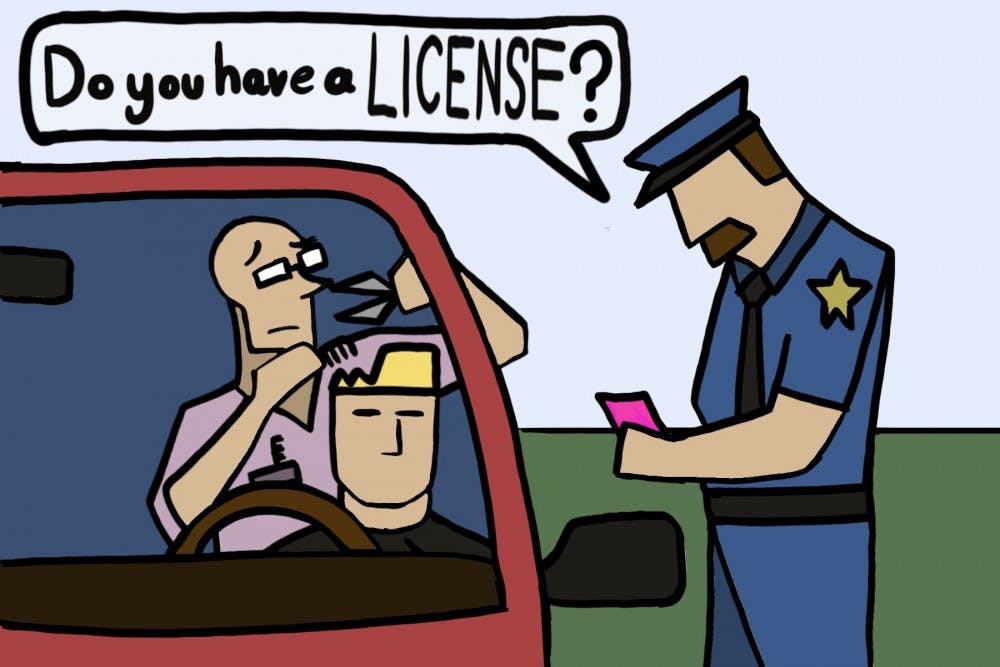I talk about rights a lot because I believe in them and their ubiquitous nature. Normally, I can refer to the U.S. Constitution for the legal basis of my opinions, but sometimes that document does not go far enough in outlining what every person should be allowed to do.
That brings us to the topic of this week’s column: the right to earn a living.
I consider this to be a fundamental human right. No government can claim to serve its people while simultaneously maintaining a climate hostile to those who simply wish get by on their own terms.
Disappointingly, there are many local and statewide organizations sponsored by their respective governments that do exactly that, to the detriment of both workers and consumers.
These organizations are the licensing and regulatory boards that, by saying they are working for public safety, enforce monopolies on behalf of established businesses and prevent people from entering the workforce.
Imagine finishing your degree at the cost of thousands of dollars and many sleepless nights, only to find that you also need the permission of your state to begin working.
Sometimes called bottleneckers, regulatory boards put up various barriers to entering industry such as nonsensical licensing or outright bans on new business models.
One of the biggest problems with the practice of licensing boards is the clear conflict of interest held by the members. A good example of this is dentistry boards.
All across the country, positions on these boards are held by active dentists. While that may make sense on the surface, it often leads to a hostile market that shuns newcomers and serves to benefit only those already working in the field.
An excellent case of this happening can be found in North Carolina, where, in 2012, simple teeth whiteners were told that only licensed and trained dentists could whiten teeth.
The worst part of that is that dental training covers so much that is completely unrelated to teeth whitening. A person does not need to know how to anesthetize a patient, perform a root canal or lay in crowns in order to whiten teeth, but that was what the state required.
Not all is lost, however, as people have started to realize the damage being done by over-regulating the market. In April, Arizona passed SB 1437, better known as The Right to Earn a Living Act.
This act has two purposes, the first one being to raise the standard of review when it comes to occupational licensing.
Before the law was passed, any challenges to regulations that made it to court were subject to a low level of scrutiny, which prevented practically anything from being overturned.
Now, a person’s right to earn a living is considered at the same legal level as the right to free speech, which is much more difficult to regulate.
The second goal of the law is to limit occupational regulations to only those that are logical.
Consider hair braiders who are often forced to jump through ridiculous hoops in order to work.
“Cosmetology requires 1,700 hours in most states to get a license, and what the boards were doing ... is they were telling hair braiders that they needed to go to cosmetology school, where zero of those 1,700 hours had anything to do with hair braiding," Jon Riches, director of national litigation at the Goldwater Institute, said. “(Under the new law) they can’t tell hair braiders who don’t go to cosmetology school ... that they need a cosmetology license because that doesn’t rationally advance the government’s interest in safe salons.”
Essentially, it puts into writing the rather uncontroversial idea that a law has to make sense before it becomes a law.
For students about to graduate and still looking for careers, this law makes it more likely that you can market your skills without the heavy hand of government regulators saying you cannot do business.
The Right to Earn a Living Act is also spreading to other states. Tennessee recently passed a similar act, and current U.S. Secretary of Labor Alexander Acosta also supports the idea of licensing reform.
While public safety is a concern, let us all remember that a license does not stop someone from being bad at their job. Therefore, it is better to allow people to make an honest living than to stifle labor participation on the whims of regulators trying to justify their existence.
Reach the columnist at cwitt2@asu.edu or follow @WittCorbin on Twitter.
Editor’s note: The opinions presented in this column are the author’s and do not imply any endorsement from The State Press or its editors.
Want to join the conversation? Send an email to opiniondesk.statepress@gmail.com. Keep letters under 500 words and be sure to include your university affiliation. Anonymity will not be granted.
Like The State Press on Facebook and follow @statepress on Twitter.




